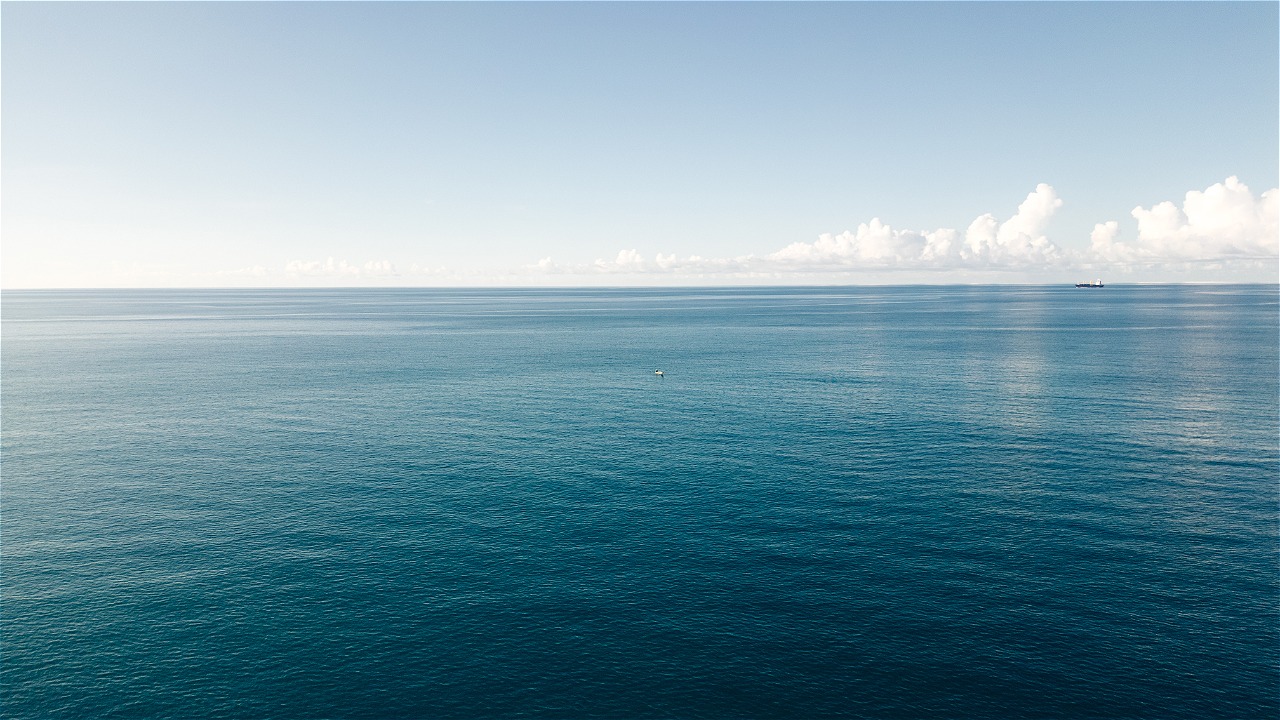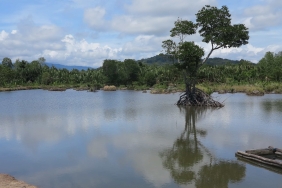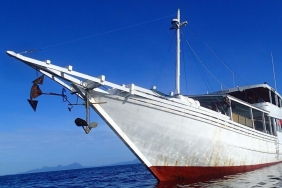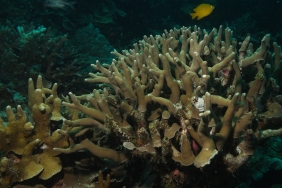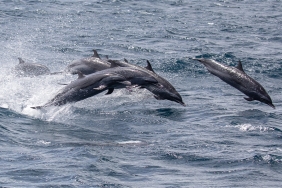DEVELOPING MARITIME POTENTIAL, WWF AND WEST MANGGARAI GOVERNMENT HOLD INTEGRATED CLASS FOR REGIONAL APPARATUS
By: Jensi Sartin (Komodo MPA Coordinator, WWF-Indonesia)
Currently, the marine; fisheries; and marine tourism sectors in Indonesia are in the spotlight at the national and international levels. The Indonesian government continues to develop these three sectors through various policies and programs that synergize with each other in order to apply the principle of sustainability so that economic growth does not reduce the quality of natural resources owned in the long term.
Based on this, the District Government of West Manggarai in collaboration with WWF-Indonesia organized an integrated class for local officials on sustainable management of marine resources in West Manggarai District. The integrated class, which was held in early February 2017, was attended by 12 agencies from the regional work units (SKPD) in the district as well as representatives of the Komodo National Park, and presented guest speaker Ir. Hugua, former Regent of Wakatobi for the 2006-2016 period.
In his welcoming speech, Agustinus CH Dulla, Regent of West Manggarai, said that conservation is very important to be integrated into development planning in West Manggarai. As a regency with great potential for marine resources, regional development in West Manggarai should be supported by this potential.
"Marine biodiversity such as sharks and manta rays, as well as capture fisheries commodities in West Manggarai should not only be potential on paper. This potential must be included in the real program of each agency (SKPD) to be managed so that it provides benefits to the people of West Manggarai," Agustinus explained.
He also added that the existence of the Komodo National Park within the West Manggarai Regency should be an added value for the sustainable management and development of West Manggarai's resources. "We must build collaboration between related parties, especially with the Komodo National Park Center. This is because we have the same big vision so that West Manggarai not only develops, but also remains sustainable until our children and grandchildren," Agustinus said.
Hugua, who successfully built Wakatobi with conservation principles through the vision of 'Realizing a Real Underwater Paradise in the Center of the World Coral Triangle', agreed that the underwater paradise of Wakatobi is still maintained today inseparable from the existence of the Wakatobi National Park. "We must admit that the system that has been formed in the national park is one of the main reasons we can still enjoy the beauty of Wakatobi's underwater world until now," said the former regent who successfully fought for Wakatobi to become one of the World Biosphere Reserves.
"In Wakatobi, I issued a regent regulation to oversee this collaboration. I propose that West Manggarai also push for a regional regulation so that the collaboration between the West Manggarai Regency Government and the Wakatobi National Park Center becomes stronger and clearer," he said.
Despite the great potential of marine resources, the government must realize that these natural resources are vulnerable to becoming a "tragedy of commons". The government and the community must realize that without collaborative and integrated management, these natural resources will run out and even only cause negative impacts on the region and its people.
Therefore, marine resource management requires coordination and involvement of all relevant parties, including regulators, users, and the community at large. The coordination in question is methods such as zoning systems, regulating the amount of utilization, the number of visits, regulating the types of activities, regulating fishing gear, and so on.
"To ensure the achievement of development targets, the regency must become an effective regulator. Although the district's authority seems to be limited or taken over by the provincial government (pemprov), the essence of development is still visible at the district level. For example, the regency must proactively provide input and attention to the provincial government to ensure that regional priorities in the marine sector are accommodated," said Anton Wijonarno, Marine Protected Area for Fisheries Manager, WWF-Indonesia, who responded to participants' concerns regarding regional authority. "", Anton continued.
The integrated class for local officials in West Manggarai will continue until June 2017 with various topics, including development planning, 'green' budgeting, species-based tourism management, sustainable fisheries management, to public engagement and collaboration. With this integrated class, it is expected to produce concrete program recommendations from each related agency.

